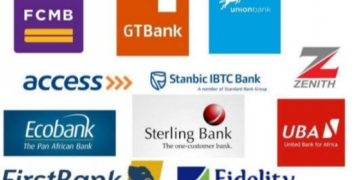The national president of Association of Small Business Owners of Nigeria (ASBON), Dr. Femi Egbesola, has stated that, the Central Bank of Nigeria(CBN)’s cash withdrawal policy will hurt Small and Medium Enterprises(SMEs) vendors and unbanked communities within the informal sector.
It added that the new laws by the CBN will create more problems for the ailing MSMEs sector at the subnational levels with the recent cash withdrawal policy.
Egbesola, while speaking in a media chat with LEADERSHIP, hinted that, a large numbers of SMEs will be devastated with the approach of CBN as more businesses will fold up and close shops due to inability to bridge gaps using technology to leverage trade in sophisticated online platforms.
He said, this policy will revamp their entire business models, close shops, fold up indigenous companies, informal markets and create a negative perception about our business climate and operating environment.
Earlier, the apex bank had directed commercial banks and other financial institutions in the country to reduce the cash withdrawal limit per week to N100,000 and N500,000 for individuals and corporate organisations respectively.
The banks were directed to also, only load N200 denomination notes or less in their ATMs, in a bid to limit the volume of N500 and N1,000 notes in circulation in a bid to curb inflation in the country.
Experts predicted that the latest move by the central bank will have a widespread effect on trade, commercial activities especially, on businesses relying on cash-based transactions, POS transactions, and other forms of electronic payments.
“These small businesses will have to accept bank transfers as a means of payment from their customers or apply for POS machines. There is however a major distrust for banking transactions due to records of transaction failures, and non-reversed transfers that have impacted the penetration of online banking in the country,” he pointed out.
ASBON boss further explained that the CBN cash withdrawal policy will completely erode SMEs businesses while hinting that a large percentage of SME operators in the country are not operating with the banks as they rely on the proceeds of their daily business transactions to survive.
Speaking on Tax remittance, Fiscal policy partner and African tax leader at PricewaterhouseCoopers (PwC), Taiwo Oyedele, further advised that businesses should register with the relevant tax authorities and open a separate bank account for their business and avoid mixing business with personal transactions.
Oyedele affirmed that the new policy by the CBN is set to change the financial ecosystem of the largest African economy, which could be a major turning point for the macro, monetary, and fiscal economy.
However, not without its pain as Nigerians will have to adapt to the imminent changes brought about by the new CBN policy.
He averred that the new policy by the CBN to reduce the maximum cash withdrawal limit has been seen as a major turning point in taming the rising inflation, curbing corruption, as well as improving the adoption of cashless banking in the country.
However, it is imperative to highlight how this new directive will affect average Nigerians and their businesses.
“We also opine this policy is also driven by the central bank’s financial inclusion strategy which is hinged on stabilising forex,” he said.




